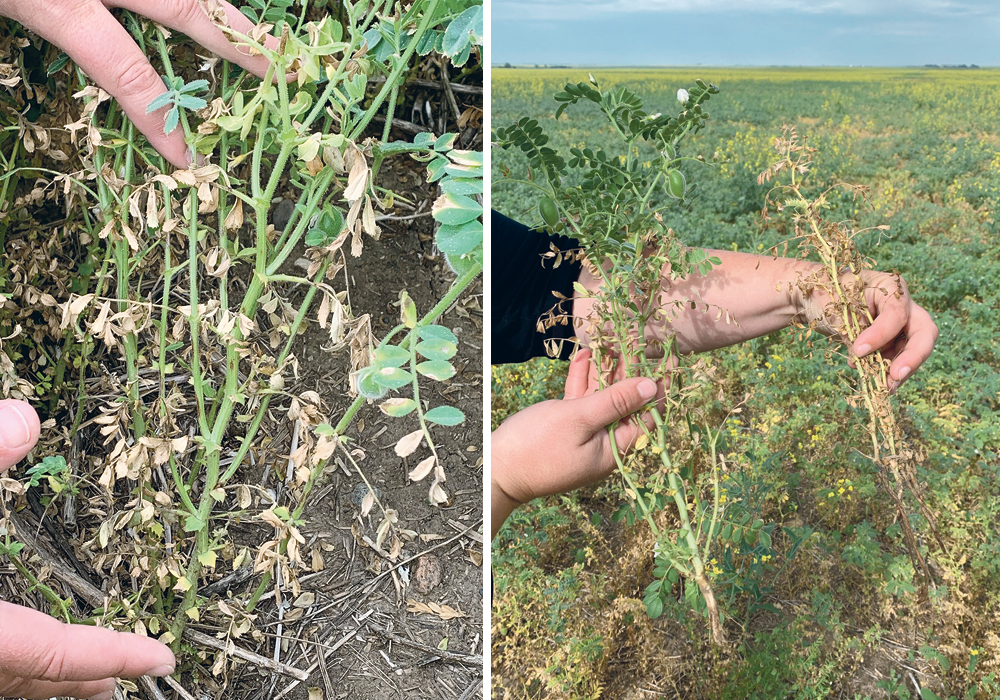The chickpea crop in southern Saskatchewan took another shellacking this summer and no one seems to know why.
“It’s a complex issue that’s not one thing so it might be a complex answer, which no one wants to hear but I think that’s where we’re heading,” said Dave Greenshields, director of Research and Development at Saskatchewan Pulse Growers.
The plant health issue has the same symptoms as the problem seen in the crop last year, with a lot of chlorosis, wilting and some plant die-off.
Read Also

Using artificial intelligence in agriculture starts with the right data
Good data is critical as the agriculture sector increasingly adopts new AI technology to drive efficiency, sustainability and trust across all levels of the value chain.
The problem is affecting a broad area, including the main chickpea growing area in the province.
He said the field histories the Saskatchewan Pulse Growers received indicate 25 to 80 percent of the crop on a specific field has been affected.
Even though the same issue affected the crop last year, it is difficult to estimate total yield loss of the crop because there has been some recovery on some fields.
“Last year, the provinces, universities, (Agriculture Canada), SaskPulse, and growers and agronomists themselves co-ordinated to gather samples and look at what it could be. Mostly disease testing was done. There was evidence for root diseases, of course for ascochyta, but it didn’t really give an answer,” Greenshields said.
This year to help track down the cause of the problem the Saskatchewan Pulse Growers contacted agronomists in southern Saskatchewan and received 27 samples from 15 different fields, as well as the field histories, and then tested for a range of different pathogens, performed nutrient analysis and herbicide residue testing.
“We didn’t get a clear answer last year so we thought let’s throw the book at it to see if there’s anything else,” Greenshields said.
The Saskatchewan Pulse Growers is also trying to crowd source information that will help in the investigation, and is seeking field histories of affected chickpea crops.
“It would be good to know what symptoms you’re seeing, combined with the cropping history of their field, and what kind of crop protection and management you’ve used on that field,” Greenshields said.
He also asked for pictures of the affected crop to be sent in with the field histories.
Kevin Hursh grows chickpeas on his farm near Cabri, Sask., and he said his crops have been affected.
“Maybe it was a combination of the disease (ascochyta) and the plants running out of moisture, I don’t know. But man there was a time they were sure going downhill in a hurry. It didn’t seem to matter how many times or when they were sprayed with fungicide,” Hursh said.
Hursh applied four fungicide applications on most of his chickpea fields but they didn’t solve the problem.
“There have been times when this crop was worth 35 or 40 cents a pound, and then you don’t mind spending a bunch of money on fungicide. But right now it’s maybe 25 or 26 cents a pound,” Hursh said.
He said it’s difficult to know what the losses will be because even when there are pods on the plants many are empty.
“There is a significant percent of the amount of pods that are aborted, depending on what field and the location in the field, and until you get in there with the combine you won’t really know what you have,” Hursh said.
To help the Saskatchewan Pulse Growers with this visit https://bit.ly/322XXkC.
















